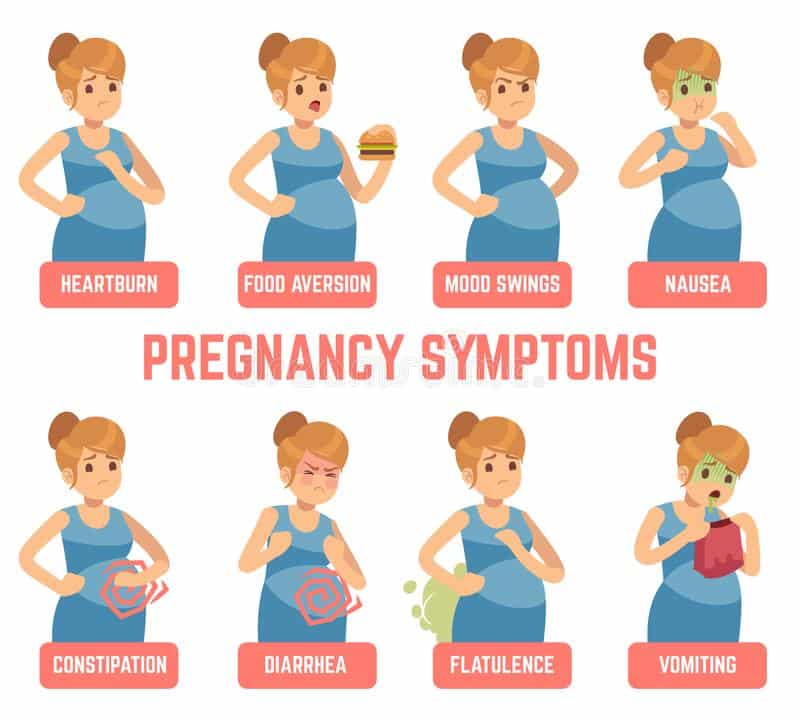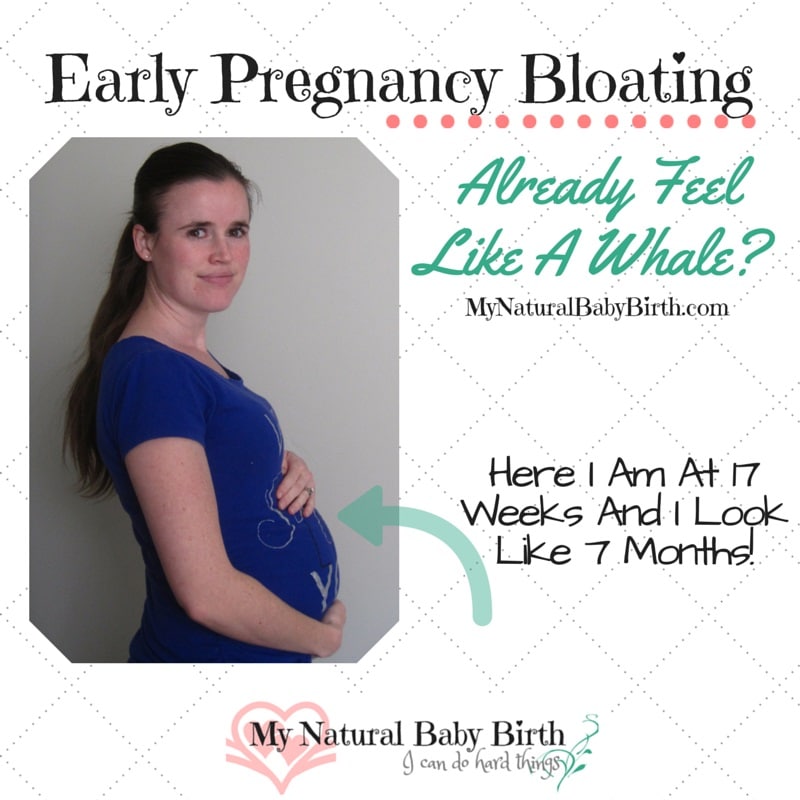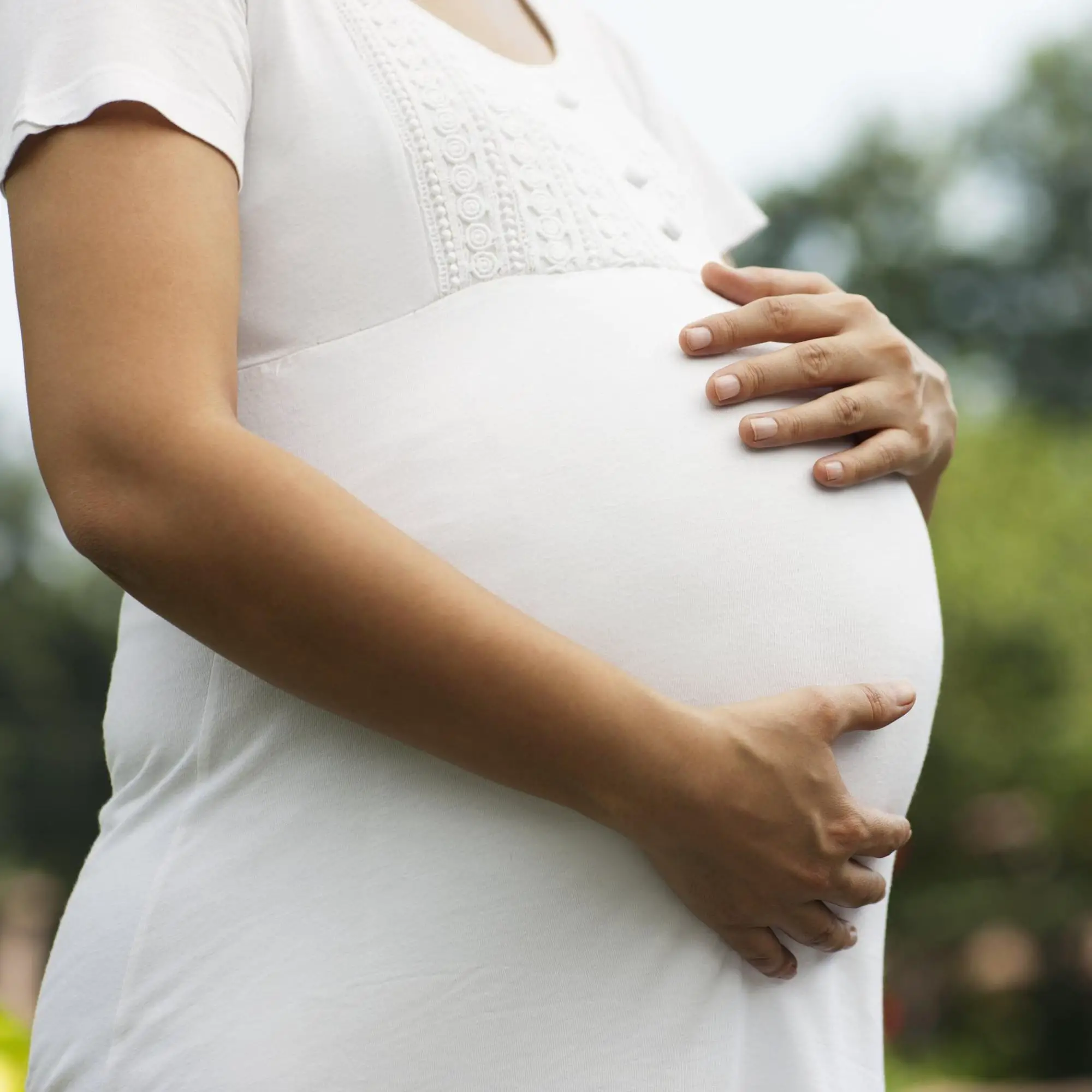What Causes Constipation In Pregnancy
Constipation can happen at any time in life, but you may be more susceptible to this condition during the later stages of pregnancy, perhaps when youâre in the third trimester. The potential causes of constipation at this time include:
-
Having higher levels of the hormone progesterone, which can slow down digestion
-
Taking iron supplements, which can irritate your digestive tract
-
Physical changes such as the weight of your uterus putting pressure on your rectum, which can worsen constipation if you already have it.
Constipation During Pregnancy: Five Ways To Get Things Moving Again
You expected morning sickness and fatigue during your pregnancy but constipation and hemorrhoids? Unfortunately, irregular bowel movements and constipation are common pregnancy complaints. And all that straining can lead to painful hemorrhoids swollen veins in the rectum.
Pregnancy isnt always the most comfortable time. Constipation and hemorrhoids can heighten discomfort even more. Being unable to have regular bowel movements can make you feel even more bloated and miserable. So, whats slowing things down?
Hyagriv Simhan, MD, a maternal fetal medicine specialist at UPMC Magee-Womens Hospital, says many things cause constipation during pregnancy. For one, progesterone relaxes the muscles of the intestines, which slows down your gastrointestinal tract.
Also, your increased blood supply requires more fluid intake. Not drinking enough can leave you dehydrated and contribute to slow bowel movements. The iron in your prenatal vitamins might also cause constipation.
What Can I Do To Ease My Constipation
- Try to go to the toilet as part of your morning routine. Having a warm drink at breakfast can help. If you dont go in the morning, about half an hour after youve had a meal is another time when youre likely to need a poo.
- Listen to your body. Always go to the toilet when you feel the urge.
- Give yourself plenty of time and try not to hurry the process along by straining.
- A sense of privacy can help, though if you have a toddler, this may be easier said than done!
- Try putting your feet on a low stool when doing a poo, as a squatting position is better than a sitting position. The image below shows you how to sit!
- A laxative called Fybogel . This is a high-fibre drink that you take morning and evening after you’ve eaten. It takes two or three days to work .
- A short course of senna. This is a natural laxative made from the leaves and fruit of the senna plant. You take it as a tablet or liquid. It takes about eight hours to work. Senna can cause diarrhoea and tummy pain, though .
- Glycerol suppository you insert a suppository in your rectum. They take about 20 minutes to work .
Don’t Miss: What Cheese To Avoid While Pregnant
What Is Pregnancy Constipation
Pregnancy constipation is the difficulty or, sometimes, temporary inability to pass a stool when you are pregnant. This may include not feeling the need to go, feeling like you need to open your bowels but are unable to, straining with little or no results, pain when you have a poo, and passing stools that are hard and difficult to part with. Constipation in pregnancy can be a one-off episode, yet, for most women, it is a problem that they experience on and off whilst it becomes a chronic ailment for others.
Being constipated in pregnancy can be an uncomfortable experience, with many women reporting feeling heavy, bloated, achey around their lower tummy and/or back, having an almost constant sensation that they need a poo, pain when they pass a stool, and increased tiredness.
What Remedies Should Not Be Used For Constipation During Pregnancy

Laxative pills are NOT recommended for the treatment of constipation during pregnancy because they might stimulate uterine contractions and cause dehydration. Talk to your doctor about taking an over-the-counter fiber supplement or a laxative or stool softener.
Mineral oils should NOT be used during pregnancy because they reduce nutrient absorption.
You May Like: How Folic Acid Helps In Getting Pregnant
How Is Constipation Treated During Pregnancy
The first step in treating constipation is to increase the fluids and fibre in your diet. Eating wholegrain foods, fruit and vegetables can often resolve constipation. If symptoms continue, then fibre supplements or laxatives may be a short-term solution however, it is always better to stimulate the bowel with a healthy diet rather than take medications. Taking laxatives can sometimes result in side effects such as abdominal pain and diarrhoea.
What Other Treatments Are There For Constipation
If changes to your lifestyle dont help with constipation, laxatives may be an option . Talk to your pharmacist about which ones are suitable for you during pregnancy .
Laxatives help you poo more regularly and usually take effect within a few days. But useful as you may find them, you should only use them for a short amount of time .
Laxatives that stimulate the bowel, like senna, might be more effective in relieving constipation than bulk forming laxatives, like bran. However, using stimulant laxatives may cause more abdominal discomfort and diarrhoea .
Speak to your GP if you are regularly constipated and it lasts a long time, if its not improving, or if you have blood in your poo .
Recommended Reading: What Will I Look Like Pregnant
What Prescription Constipation Medications Are Safe During Pregnancy
Most constipation medications are available OTC, but a few are available only with a prescription. However, many prescription constipation medications are questionable or unsafe to use during pregnancy. This is because there’s limited information about them during pregnancy. Pregnant women are often excluded from research studies.
One that is considered safe to use is lactulose. Lactulose is an osmotic laxative thats only available with a prescription. Like the OTC products, it raises the amount of water in your stool.
But osmotic laxatives have side effects that limit their use. For example, lactulose may cause uncomfortable bloating, gas, and nausea. It may also cause electrolyte imbalances. Electrolytes, such as sodium and potassium, are important for the normal function of your cells. Even slight changes may cause serious harm.
Can Straining Cause A Miscarriage
Straining to have a bowel movement will not cause a miscarriage. According to the American Pregnancy Association, most miscarriages happen from:
- Problems with the babys chromosomes.
- Problems with the mothers hormones, uterus, or cervix.
- Infections or exposure to certain toxins.
- Lifestyle factors like smoking, drinking alcohol, or using illegal drugs.
- Having certain health conditions like diabetes or kidney disease.
Read Also: How Early Can Ultrasound Detect Pregnancy
Reach For Coconut Oil
According to Dr. Arielle Miller Levitan, an Illinois-based internal medicine specialist, eating a tablespoon or two of coconut oil each day might help lubricate your intestines. In turn, this may help prevent constipation. Ask your doctor if this remedy might work for you.
If the idea of swallowing a spoonful of coconut oil doesnt appeal to you, there are other ways to add it to your diet. For example, you could mix it into your morning coffee or blend it with vinegar for a simple salad dressing.
What Causes Pregnancy Constipation
When you become pregnant, rising levels of the hormone progesterone slow your digestive system to a snails pace, and for good reason: your body is absorbing the extra nutrients and fluids it needs to grow a healthy baby. The result, though, is harder stools that are more difficult to pass. This happens so early that it is a first sign of pregnancy for some women, says Suzanne Wong, an OB/GYN at Torontos St. Josephs Health Centre.
In your second and third trimesters, pressure from your growing uterus on your bowels can exacerbate the problem, and that extra iron and calcium in your prenatal vitamins are binding, so theyre not doing your situation any favours, either. And if you suffered from constipation prior to pregnancy, theres a good chance youll suffer in pregnancy. The risk of becoming constipated is enhanced if you have a predisposition to it, says Wong.
Recommended Reading: Can You Take Vital Proteins Collagen While Pregnant
Is It Safe To Use Stool Softeners To Treat Constipation During Pregnancy
During pregnancy, stool softeners are usually considered safe.
Pregnancy constipation can be uncomfortable, defined as having less than three movements of the intestine a week. Stool softeners like Colace moisturize the stool and make passing easier. These products are unlikely to harm a developing baby due to the bodys minimal absorption of their active ingredient. However, before taking any medication including stool softeners and other types of laxatives check with your health care provider to treat constipation of pregnancy.
The Link Between Constipation And Hemorrhoids

On its own, pregnancy increases your risk of swollen veins around your rectum. “But if your stool is uncomfortable to pass and you’re straining to do so, it can make hemorrhoids worse,” says Shari Brasner, M.D., assistant professor of obstetrics and gynecology at Mount Sinai School of Medicine, in New York City, and author of Advice from a Pregnant Obstetrician “This is serious, because they can be with you for life.” You can prevent pregnancy hemorrhoids by managing constipation, using the tips below.
Also Check: Which Pregnancy Test Can Detect Early Pregnancy
Fight Back With Fiber:
Fiber-rich foods help remove waste aim at 25 to 35 grams per day. If you want to check the food labels, but you dont have to do the math. Instead, concentrate on eating a lot of cereal and bread from full grain, legumes, fresh fruit and veggies , and dried fruit. Going for the green can also help you go, both in the form of green leafy vegetables and kiwi fruits, which have a powerful laxative effect. The sample to get started from this fiber-rich and delicious menu. Actually plugged up? Try to add bran or psyllium to your diet, start with a sprinkle and grow as needed. But first, check with your doctor and dont go overboard, as these fiber powerhouses can carry important nutrients away before they can be absorbed.
Is Constipation Ever Serious During Pregnancy
Not usually, but sometimes constipation can be a symptom of another problem during pregnancy. Call your doctor or midwife immediately if you have severe constipation that is accompanied by abdominal pain, alternate with diarrhea, or passes mucus or blood.
Furthermore, straining during a bowel movement or passing through a hard stool can lead to or worsen hemorrhoids in the rectal area that are swollen veins. Hemorrhoids can be very uncomfortable, although they rarely cause serious problems. They go away pretty soon after your baby is born in most cases. However, call your provider if the pain is severe, or if you have rectal bleeding.
Also Check: How To Lower High Blood Pressure During Pregnancy
Consider Taking Magnesium Supplements
Getting enough magnesium in your diet might also help relieve constipation. Oral magnesium supplements function as osmotic laxatives. That means they pull water into your digestive system, which helps soften your stool.
You can purchase magnesium capsules at health food stores and pharmacies. You can also get magnesium from food sources. Talk to your doctor before talking magnesium if you have a history of kidney problems. Conveniently, most foods that are high in magnesium are also high in fiber. For example, whole grains and dark leafy greens are good sources of both.
Potential Complications Of Constipation
If the symptoms of constipation persist for several weeks or longer, this indicates chronic constipation, which can lead to complications such as:
-
Fecal impaction, which is when hardened stool accumulates in your intestines
To help avoid complications, itâs safest to get in touch with your healthcare provider at the first signs of constipation or pain.
Donât let constipation ruin your last few months of pregnancy! Talk to your healthcare provider, and make some of the lifestyle changes weâve listed in this article. In time, things will get moving down there, and you can get back to more enjoyable tasks such as shopping for baby gear, decorating your babyâs nursery, or even just putting your feet up for a bit.
One thing to keep in mind is that, at the other end of the spectrum, you may experience diarrhea from time to time during your pregnancy. You should always mention this to your healthcare provider, especially if you suspect it may be caused by something like food poisoning or a tummy bug.
See all sources
Read Also: Can I Get Pregnant On My Fertile Days
Constipation During Pregnancy: How To Get Relief Babycenter
- www.babycenter.com
- Highest rating: 4
- Summary: One reason for constipation during pregnancy is an increase in the hormone progesterone, which relaxes
See Details
- Highest rating: 4
- Summary: An increase in the pregnancy hormone progesterone can cause your gut to work less efficiently and your food to move more slowly through your intestines. This is
See Details
When To Call Your Doctor
Postpartum constipation is very common and usually resolves with proper lifestyle coping measures, but sometimes it can be a sign of a bigger problem. There are several “red flag” symptoms that you should be on the lookout for.
- Blood or mucus in your stool
- Constipation alternating with diarrhea
- Severe rectal pain
You May Like: How To Track Your Cycle To Not Get Pregnant
Change Or Add Supplements
If youre eating well and exercising, and youre still constipated, Strydom suggests changing vitamins until you find a brand thats less constipating. A fibre supplement like Metamucil can also get you out of your bind and is considered safe in pregnancy. Never take a laxative or stool softener to treat constipation, though, without first speaking with your health care provider, says Wong.
While Hedrick found temporary relief in water and All-Bran , long-term relief didnt come until after delivery when she was able to return to her pre-pregnancy diet, which included a lot of dark, leafy greens as opposed to fully loaded cheeseburgers. Despite her experience, though, Hedrick says shed do it all over again: There are no pregnancy discomforts that could have held me back from having children, she says.
Why Do I Have Constipation During Pregnancy

Constipation is a common problem during pregnancy: Up to half of pregnant women get constipated at some point.
One reason for constipation during pregnancy is an increase in the hormone progesterone, which relaxes muscles throughout the body, including the digestive tract. This means that food moves through the intestines more slowly.
Additionally, there are distinct changes in your blood vessels and total body fluid while pregnant. Your blood vessels dilate so they can hold approximately 50 percent more fluid by the time you deliver. As your pregnancy progresses, your hydration goal-line” if you will, is constantly changing as your body holds on to more and more fluid. This can lead to symptoms of dehydration, including constipation and headaches. Other factors can include eating a low-fiber diet , and reduced physical activity because of pregnancy fatigue and discomfort.
And the problem may be compounded later in pregnancy by the pressure of your growing uterus on your colon and rectum. Iron supplements, especially in high doses, can make constipation worse.
Don’t Miss: How To Avoid Nausea In Pregnancy
How To Deal With Constipation During Pregnancy
Constipation is often an early sign of pregnancy, and sometimes it continues for all nine months . Here’s what you can do to get relief from pregnancy constipation.
Both of Adele Hedricks pregnancies were marred by months of cramping, bloating and gassiness thanks to constipation, which affects 11 to 38 percent of pregnant women. It added so much more discomfort to pregnancy, says the Bowmanville, Ont. mom of two. When she developed painful hemorrhoids as a result of straining, Hedrick knew it was time to put some serious effort into softening her stools. I focused on drinking lots of water and eating whatever fibre I could get my hands on, she says. All-Bran was my best friend.
Your Position On The Toilet
Having a good position on the toilet can help when you are emptying your bowels.
Recommended Reading: Do Low Dose Birth Control Pills Prevent Pregnancy
Guidance On Managing Constipation
The first-line treatment for constipation is increasing dietary fibre and fluid intake. Dietary fibre intake can be improved by eating more wholegrain foods, fruit and vegetables, or through wheat or bran fibre supplementation. Where fibre supplementation does not alleviate symptoms, laxatives may be helpful in the short-term, although they can cause adverse side effects such as abdominal pain and diarrhoea.
Can Constipation Cause Miscarriage In Early Pregnancy
In particular, miscarriage is not caused by lifting, straining, working too hard, constipation, straining at the toilet, sex, eating spicy foods or taking normal exercise. There is also no proof that waiting for a certain length of time after a miscarriage improves your chances of having a healthy pregnancy next time.
You May Like: What Doctor Do You Call When Your Pregnant
Why Am I Constipated During My First Trimester
During pregnancy, high levels of the hormone progesterone slow down the muscle contractions that normally move food through your system. Add to that the extra iron youre getting from your prenatal vitamin, and the result is uncomfortable constipation and gas that can keep you feeling bloated throughout your pregnancy.

